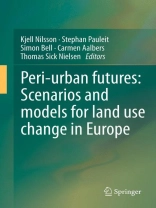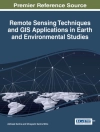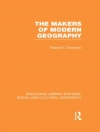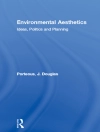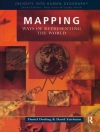Presently, peri-urbanisation is one of the most pervasive processes of land use change in Europe with strong impacts on both the environment and quality of life. It is a matter of great urgency to determine strategies and tools in support of sustainable development. The book synthesizes the results of PLUREL, a large European Commission funded research project (2007-2010). Tools and strategies of PLUREL address main challenges of managing land use in peri-urban areas. These results are presented and illustrated by means of
7 case studies which are at the core of the book. This volume presents a novel, future oriented approach to the planning and management of peri-urban areas with a main focus on scenarios and sustainability impact analysis. The research is unique in that it focuses on the future by linking quantitative
scenario
modeling and sustainability impact analysis with qualitative and in-depth analysis of regional strategies, as well as including a study at European level with case study work also involving a Chinese case study.
Spis treści
Preface.- Part 1: Concepts.- The dynamics of peri-urbanization.- Rural-Urban Regions – A spatial approach to define urban-rural relationships in Europe.- Tools for modelling and assessing peri-urban land use futures.- Part 2: Case Studies.- The Hague region: negotiating the common ground in peri-urban landscapes.- Warsaw – spatial growth with limited contro.- Manchester: re-inventing the local-global in the peri-urban city region.- Leipzig-Halle – Ecosystem services in a stagnating urban region in Eastern Germany.- The Montpellier agglomeration: new approaches for territorial coordination in the peri-urban.- 9. Koper – beyond the rural and urban paradigm.- Hangzhou – fast urbanisation and high population growth.- Part 3: Synthesis.- Governance and sustainability of peri-urban areas: A comparative analysis of the PLUREL case studies.- Sustainable land use in peri-urban areas: government, planning and financial instruments.- The future of the rural urban region.
